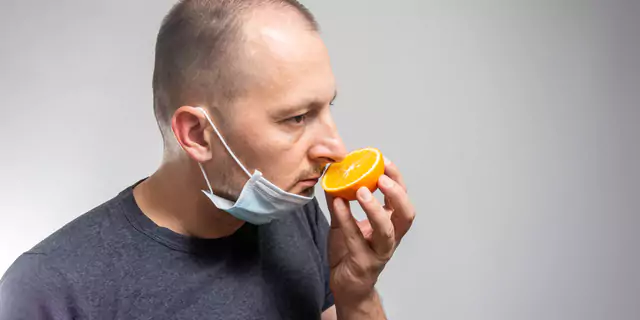Covid-19 and Blood Glucose Levels

Key Takeaways
The healthcare crisis of the past two years has been, hands down, the global Covid-19 pandemic. Although there is precious little information about how a typical infection with the virus affects blood glucose levels over the long term, there are some things we can learn from short-term viral infections in general. There are also some things we can learn from “long covid” cases. However, we can’t speculate too much about this because the sample of people followed closely enough to make any conclusions is still relatively small, at least in terms of good longitudinal data. Finally, there are some known consequences of immobility and the “lockdown” lifestyle that we can reliably conclude. There are a lot of unknown unknowns, things we don’t know that we don’t know, and this evolving field will surely develop quickly. As such, some of the advice we offer here may be updated in the future.

Viral Infections and Blood Glucose Levels
One response to infection the body has is to raise stress hormones like cortisol. This will in turn raise blood glucose levels. It’s one reason why it’s so important to tell your doctor that you have pre-diabetes or diabetes if you have them. If you end up needing treatment for a viral infection, it will trigger the release of cytokines that increase cortisol production. Stressful events, such as medical treatment and hospitalization itself, can also raise levels of this stress hormone that can further raise blood glucose levels. In the case of Covid-19 infection, for example, one of the main pharmacological treatments is dexamethasone or another steroid, which will further raise blood glucose levels if taken. While in a hospital, supplemental oxygen and antiviral medicine will do what they can to help a person out the front doors as soon as possible, but the stay will generally mean a significant reduction in mobility and possible worsening of the diet.

“Long Covid” and Blood Glucose Levels
The symptoms of “long covid” are many, and the most concerning are usually related to the lungs themselves, or the small vessel dependent organs like the kidney. So, at first glance, it can seem that the risk factors for “long covid” and prolonged high blood glucose levels overlap – and they do. For now, there are some reports of people with known diabetes having worsening blood glucose levels or symptoms while experiencing a “long covid” infection. As you may expect for a novel virus undergoing significant variation monthly, the final verdict on findings like this will surely come when the long-term studies looking into these questions specifically are completed and published on this important issue. In the meantime, it is important to keep in mind that since what we know changes so quickly, it would not be surprising if something like an impact on blood glucose levels would not be beyond the pale. Although existing diabetes is a known risk factor in Covid-19 infection, there are also some doctors who already believe that Covid-19 can cause new-onset diabetes.

Loss of Smell and Taste from Covid-19 Infection
One of the more specific symptoms associated with Covid-19 infection is a loss of smell and associated loss of taste, as you need smell to taste correctly. In a situation like this, someone may either eat less food or, alternatively, eat very sugary or salty food to be able to taste it. This is a very personal matter, and we can’t really come down one way or another on specific dietary recommendations for people who can’t taste well. What we can do is emphasize the same general wellness advice – to eat whole foods, primarily fruits, vegetables, and proteins. Depending on the status of a person’s lungs, some aerobic exercise is also recommended as they can tolerate, but we would also be wary to overdo it in this situation.
Social Restrictions and Blood Glucose Levels
Much like our advice in the first section, it is absolutely and unambiguously a good practice to follow the recommendations to avoid a Covid infection, it is also unambiguously not good for blood glucose levels to live a sedentary lifestyle indoors. Lack of aerobic exercise is a known risk factor for developing problems with blood glucose levels, and this would be no exception. Also, when people live at home for a prolonged period without the daily rhythms and social contacts, they can become depressed and eat lower quality food. Although it should be said that many people found their inner chef and started cooking in a serious way for the first time during the lockdown period, so even in this sense there is a deep personal difference between individual cases. On average, though, rates of alcohol intake rose sharply during the lockdown period, which can cause damage to the pancreas and the liver, two organs essential for the regulation of blood glucose levels.
Find the right Nutrisense programto turn insight into progress.
Go Beyond Glucose Data with Nutrisense
Your glucose can significantly impact how your body feels and functions. That’s why stable levels are an important factor in supporting overall wellbeing. But viewing glucose isn't enough. Nutrisense, you’ll be able to learn how to use your body's data to make informed lifestyle choices that support healthy living.
One-to-one coaching
Sign up to access insurance-covered video calls to work with a glucose expert: a personal registered dietitian or certified nutritionist who will help tailor your lifestyle and diet to your goals.
Monitor and measure what matters
With the Nutrisense CGM Program, you can monitor your glucose with health tech like glucose biosensors and continuous glucose monitor (CGM)s, and analyze the trends over time with the Nutrisense App. This will help you make the most informed choices about the foods you consume and their impact on your health.
Find your best fit
Ready to take the first step? Start with our quiz to find the right Nutrisense program to help you take control.

Kara Collier is a registered dietitian nutritionist and certified nutrition support clinician who is passionate about reshaping how we approach prevention, behavior change, and metabolic health. A Forbes 30 Under 30 honoree, she’s helped over 150,000 people improve their metabolic health using tools like continuous glucose monitors and behavior-focused nutrition strategies. Kara has been featured by Forbes, UC Berkeley, and HLTH, and has appeared on top podcasts like Mind Pump and The Genius Life.


.webp)

